CIA Sponsored Terror, Civil Liberties, Criminalizing Dissent, Gaza, Human Rights, Iran, Iraq War, Supreme Court, Truth to Power
Podcast: Play in new window | Download
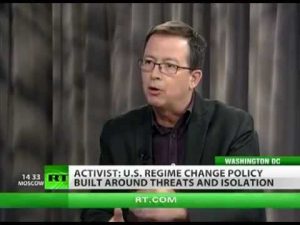

Middle East Round Up: Brian Becker
Iran and Gaza are at both at critical and potentially catastrophic junctures. Iran faces new challenges due to because of Donald Trump’s denunciation of the 2015 nuclear deal with Iran and the re-imposition of sweeping sanctions. As well, recent elections in Iraq pushed Iran’s allies in Iraq’s Shia militias–the Popular Mobilization Forces—into second place by nationalist Moqtada al-Sadr.
The element within the Republican Party with deep pockets is the Republican Jewish Committee. They support Netanyahu and his Likud party. The RJC supported both the blowing up of the Iran deal and the move of the Embassy to Jerusalem. Now they support Netanyahu’s crushing of the Palestinians in Gaza.
Iran also risks being diplomatically out-maneuvered. Israel Prime Minister Benjamin Netanyahu was in Moscow recently, aligning his interests in Syria with Vladimir Putin’s. In what is becoming routine coordination, Israel forewarned Russia of its attacks on Iran. Viewed from Tehran, Russia, Iran’s ostensible brother-in-arms in Syria, is more and more unreliable. Its Saudi foes are greatly encouraged by Trump’s offensive.
Guest – Brian Becker, the National Coordinator of the ANSWER Coalition and a leader of the Party for Socialism and Liberation. Brian has been a central organizer of the mass anti-war demonstrations that have taken place in Washington, D.C. in the past decade.
—-
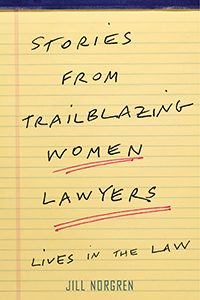
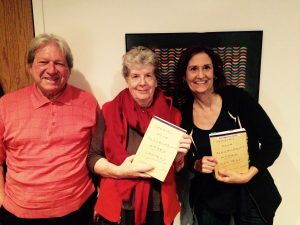
Stories From Trailblazing Women Lawyers
Before the Civil War there were six women lawyers in the entire United States of America. By 1890 there were about 200 and by 1900 about 1000. Women then could not even vote.
It was nearly impossible for a woman to get admitted to a law school or find a job when she graduated. Things did not qualitatively change until the late 1960s and 1970s.
By then, as a consequence of a number of factors including the great civil rights movement, the women’s movement, and the empty law school seats created by drafting men to serve in the Vietnam War, women were able to fight discrimination and win law school admission first by protesting in the streets and then through legislation, court decisions, and the actions of a few forward looking politicians.
Now half of the students in American law schools are women. They are professors in those very same places, indeed, the deans of the two most prestigious law schools in America, Harvard and Yale, are women. They are partners in law firms, hold important positions and governmental agencies, and are judges on the bench.
They have made a difference in the measure of social justice obtained by people in this country by advancing peoples’ and women’s rights in education, healthcare, employment, discrimination, family life, and violence against women.
Guest –Jill Norgren, the author of the just published book Stories From Trailblazing Women Lawyers. Ms. Norgren is Professor Emerita of Political Science at John Jay College and the Graduate Center, the City University of New York. She is the author of several books including Rebels at the Bar.
————————
Academic Freedom, Civil Liberties, Criminalizing Dissent, Human Rights, Truth to Power, War Resister
Podcast: Play in new window | Download

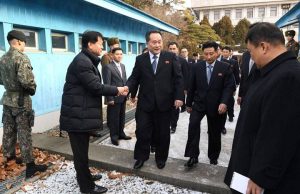
North and South Korea Diplomacy
In a historic diplomatic break-through the leaders of North Korea and South Korea met earlier this month. The North Korean leader Kim Jung-Un promised to give up his country’s nuclear weapons declaring that its not necessary to have them if the United States formally ends it’s provocations and promises not to launch any military aggression against his country. He promised that North Korea will dismantle is nuclear test site in Punggye-ri in May.
The Korean War which began in 1950 came to an end in 1953. An armistice was signed but peace was never officially declared and the two countries have been officially at war ever since.
This state of affairs will hopefully be resolved. At the meeting, South Korean President Moon Jae-in embraced North Korean leader Kim Jong-un after signing the Panmunjom Declaration for Peace, Prosperity, and Unification of the Korean Peninsula.
Guest – Attorney Jim Lafferty is one of the leaders of the anti-Vietnam War movement and has remained a peace activist for five decades. Jim Lafferty is currently the head of the Los Angeles chapter of the National Lawyers Guild and an organizer of and speaker at last week’s Los Angeles teach-in on the Korean situation.
—-
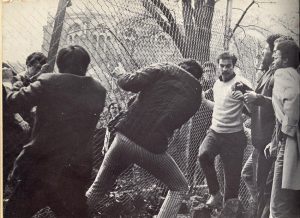
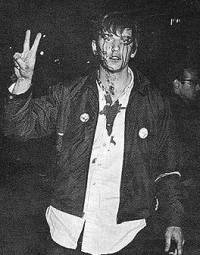
Columbia University Protests of 1968: Fifty Years Later
1968 was a momentous year. Huge historical events happened in the USA, Latin America, Europe, and Asia fifty years ago that shaped the course of history.
In France the students and workers came close to overthrowing capitalism in an advance capitalist country.
In Eastern Europe the Czechoslovakian people would’ve installed a democratic socialism, what they called socialism with a human face, but for the intervention by the power of Soviet Union which sent in troops to crush the uprising.
In Vietnam, the American war effort to prevent the Vietnamese people from determining their own destiny showed the world to be a losing proposition by the Tet Offensive. The Vietnamese National Liberation Front and the Hanoi coordinated military strikes throughout the south of their country, temporarily took over the southern capital of Saigon including the American Embassy.
Martin Luther King Jr. was assassinated in Memphis, Tennessee on April 4, 1968 provoking rebellion in the inner cities of the USA. Two weeks later the students, both black and white, rose up at Columbia University in New York City.
The African-American students demanded that the university stop encroaching in neighboring Harlem, where the university was planning to build a gymnasium for its students in a public park. They took over Hamilton Hall, a classroom building on the campus and received wide support from the Harlem community. The white students supported this demand. They took over four other buildings, including the administration building (Lowe Library) demanding that the University end its complicity in doing research that supported the American imperial war in Vietnam.
After a week of the student occupation, the New York City Police on behalf of the administration descended on the campus, violently beat the students, and arrested some 700 of them. They were defended by members of the National Lawyers Guild. After the arrests, the students went on strike. In the end the university’s complicity with the war in Vietnam and it’s landgrab in Harlem were ended.
Guest – Attorney Eleanor Stein, she was a law student at Columbia at the time and a participant in the student strike. She teaches a course called the Law of Climate Change: Domestic and Transnational at Albany Law School and SUNY Albany, in conjunction with the Environmental and Atmospheric Sciences Department at SUNY. Eleanor Stein is teaching transnational environmental law with a focus on catastrophic climate change. For ten years she served as an Administrative Law Judge at the New York State Public Service Commission in Albany, New York, where she presided over and mediated New York’s Renewable Portfolio Standard.
Guest – Professor Stefan Bradley whose primary research area is recent African-American history. He is the author of Harlem versus Columbia University: Black Student Power in the Late 1960s. Professor Bradley teaches at Loyola Marymount University in Los Angeles and is the chairperson of the African American studies department. He was a much appreciated participant in last weeks conference on the Columbia strike.
—————————————-
Civil Liberties, Criminalizing Dissent, Human Rights, Human Trafficking, Political Prisoner, Prison Industry
Podcast: Play in new window | Download
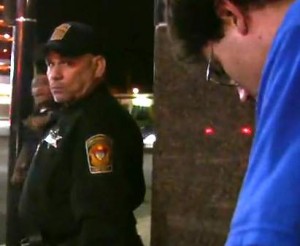
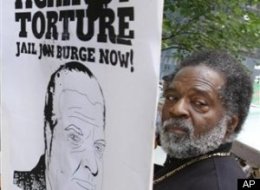
Kisela vs Hughes: Qualified Immunity
All too often government officials including law-enforcement agencies get away with gross abuses of power because they invoke the doctrine of qualified immunity. This is a doctrine which protects police who kill civilians.
In the United States, 2,934 civilians were shot and killed by police since 2015. That is nearly 1000 people a year. In most European countries the number of people killed by the police is zero.
The doctrine of qualified immunity prevents government agents from being held personally responsible for constitutional violations unless the violation was of clearly established law. This is something nearly impossible to prove.
A Supreme Court decision two weeks ago in the Kisela vs Hughes case decided against the plaintiff victim of police abuse by a 7 to 2 majority two liberal justices Sotomayor and Ginsberg dissented. They opined that the majority of supreme court judges have established what they called an absolute shield protecting police from what they labeled palpably unreasonable action that will go unpunished.
Guest – Attorney G.Flint Taylor, a graduate of Brown University and Northwestern Law School, is a founding partner of the People’s Law Office in Chicago, an office which has been dedicated to litigating civil rights, police violence, government misconduct, and death penalty cases for more than 40 years.
Guest – Attorney Ben Elson is a partner at the People’s Law Office. His practice focuses on representing victims of police and other governmental misconduct in civil rights cases, including people who have been wrongfully convicted, subjected to police brutality, and denied medical attention. He has obtained tens of millions of dollars in compensation for his clients through verdicts and settlements.
—-
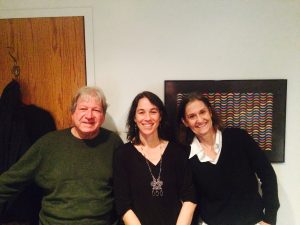
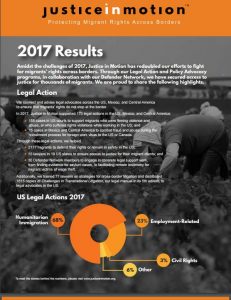
Lawyers You’ll Like: Cathleen Caron – Justice In Motion
Attorneys who represent migrant workers face a host of challenges in transnational employment litigation. Some of these challenges range from not being able to obtain a visa for clients posed to begin trial but are physically back at home in Guatemala or another country, and cannot return to testify. Or clients may be entitled to past wages but their US lawyers are unable to find them once they have left the States.
For some lawyers, it’s cost-prohibitive to keep in contact or to track down clients when the case goes to trial and forgo representing them entirely.
This is where the organization Justice in Motion comes in. Their unique cross-borer model helps advocates and migrants overcome these barriers to what they call portable justice. Their mission is to ensure that migrants who suffered exploitation abroad are able to access justice even if they have returned to their home countries. They connect advocates and defenders, and support the development of cases to ensure that transnational litigation is working effectively and smoothly on behalf of migrants. They play a pivotal role in persuading attorneys to work on cases with a transnational dimension, and to not forgo them because of legal or logistical obstacles. This has led to a significant increase in the number of advocates in the region providing transnational legal services to migrants. Justice In Motion 2017 Brochure
Guest – Attorney Cathleen Caron, National Lawyers Guild member, Cathleen is the founding executive director of Justice in Motion, and she’s also one of our Lawyers You’ll Like. Cathleen has more than twenty years of human rights experience in the United States and abroad. Prior to launching Justice in Motion (formerly known as Global Workers Justice Alliance), she was in East Timor where she directed a national needs assessment of the human trafficking situation for the Alola Foundation, chaired by East Timor’s First Lady.
—————

—————
Civil Liberties, Criminalizing Dissent, Human Rights, Human Trafficking, Supreme Court, Torture, Truth to Power, War Resister
Podcast: Play in new window | Download
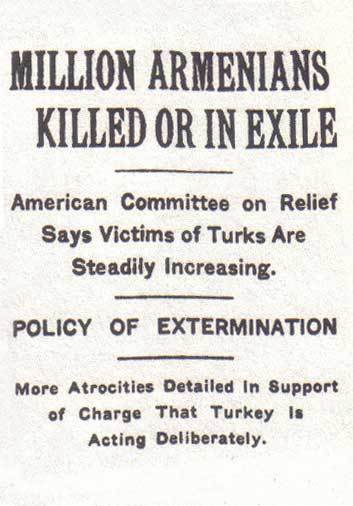
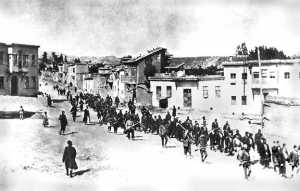
Speaking In Turkish: Denying the Armenian Genocide
Around the world, April 24 marks the observance of the Armenian Genocide. On that day in 1915 the Interior Minister of the Ottoman Empire ordered the arrest and hangings of Armenian intellectuals and community leaders in Constantinople. It was the beginning of a systematic and well-documented plan to eliminate the Armenians, who were Christian, and who had been under Ottoman rule and treated as second class citizens since the 15th century.
The unspeakable and gruesome nature of the killings—beheadings of groups of babies, dismemberments, mass burnings, mass drownings, use of toxic gas, lethal injections of morphine or injections with the blood of typhoid fever patients—render oral histories particularly difficult for survivors of the victims.
Why did this happen? Despite being deemed inferior to Turkish Muslims, the Armenian community had attained a prestigious position in the Ottoman Empire and the central authorities there grew apprehensive of their power and longing for a homeland. The concerted plan of deportation and extermination was effected, in large part, because World War I demanded the involvement and concern of potential allied countries. As the writer Grigoris Balakian wrote, the war provided the Turkish government “their sole opportunity, one unprecedented” to exploit the chaos of war in order to carry out their extermination plan.
As Armenians escaped to several countries, including the United States, a number came to New Britain, Connecticut in 1892 to work in the factories of what was then known as the hardware capital of the world. By 1940 nearly 3,000 Armenians lived there in a tight-knit community.
Pope Frances calls it a duty not to forget “the senseless slaughter” of an estimated one and a half million Armenians by the Ottoman Turks from 1915 to 1923. “Concealing or denying evil is like allowing a wound to keep bleeding without bandaging it,” the Pope said just two weeks before the 100th anniversary of the systematic implementation of a plan to exterminate the Armenian race.
Special thanks to Jennie Garabedian, Arthur Sheverdian, Ruth Swisher, Harry Mazadoorian, and Roxie Maljanian. Produced and written by Heidi Boghosian and Geoff Brady.
———————————————

CIA Sponsored Terror, Civil Liberties, Criminalizing Dissent, FBI Intrusion, Human Rights, Iraq War, NSA Spying, Political Prisoner, Prison Industry, Surveillance, Targeting Muslims, Torture, Truth to Power, War Resister
Podcast: Play in new window | Download
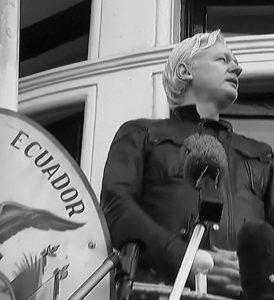
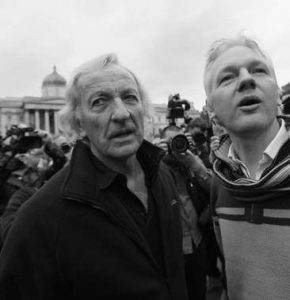
Mass Support Needed For Julian Assange
Two weeks ago, WikiLeaks founder and internet publisher Julian Assange , who is holed up in the Ecuadorian embassy in London, had his Internet access cut off due to pressure by the British and American governments on Ecuador. Ecuador had granted him political asylum in their embassy where he has been living in two small sunless rooms for five years. Ecuador gave him political asylum after he sought refuge in the embassy to avoid extradition to Sweden, which would have sent him to the US. Assange was under protracted investigation for a rape claim, made up by the Swedish police and Swedish prosecutor and denied by the purported women victim. Sweden finally dropped the case, but Assange remains subject to arrest in Britain jumping bail.
Assange and WikiLeaks had been steadily revealing the war crimes and illegalities of the American government since it first published the Iraq war logs eight years ago. The war logs included video footage of American soldiers assassinating Iraqi civilians and a Reuters journalist. Chelsea Manning, who was recently released after seven years in prison, furnished WikiLeaks with the war logs.
The United States government is seeking to capture Assange and bring him back to the United States to stand trial for espionage, a crime which carries the death penalty.
Guest – John Pilger, an Australian-British journalist based in London. John has worked in many facets of journalism, including a correspondent in the Vietnam War, the Middle East Desk for Reuters in London, a documentary film maker, and a producer for the Independent Television Network in London. Pilger is known for his conscience, bravery and acute historical insight. His articles appear worldwide in newspapers such as the Guardian, the Independent, the New York Times, the Los Angeles Times.
—-


You Thought We Wouldn’t Notice: Intellectual Property
Laws protecting artwork and intellectual property are increasingly being put to the test amid claims from rising artists marketing their work online whose work is being copied by others.
Art piracy can include music posters, clothing design, book cover art, signage, record sleeve art, and typography. Under copyright law, one artist using another artist’s idea is generally legal, while one artist using another’s expression of that idea is generally illegal. Only a fact-intensive analysis can provide a bit of clarity, and even that is subject to a judge’s or jury’s review.
Sometimes copyright cases expand into major litigation. A New York judge recently ruled that graffiti, or aerosol artists, were entitled to a $6.7 million verdict after New York developer Gerald Wolkoff destroyed their well-known public work. The claim in the so-called FivePointz case arose under the Visual Artists’ Rights Act, or VARA. It’s the kind of case that attorney Scott Burroughs says rarely goes to trial. Several artists created aerosol art pieces on the walls of an abandoned development in the once downtrodden and now gentrified neighborhood of Long Island City, Queens. Wolkoff destroyed their art as part of a development plan. Read Scott’s Column Above The Law.
Guest – Attorney Scott Burroughs, an advocate for artists’ rights who curates the art law blog You Thought We Wouldn’t Notice and has a weekly copyright law column on legal website Above the Law.
———————————————-

CIA Sponsored Terror, Civil Liberties, Criminalizing Dissent, Human Rights, War Resister
Podcast: Play in new window | Download
Updates:
- Co-host Michael Smith Discusses Being Plaintiff In Saudi Arabia Terror Lawsuit
—-


President Donald Trump Picks John Bolton For National Security Adviser
In these unsettling times it was particularly disturbing to a lot of people to learn last week that President Trump chose John Bolton to replace general H. R. Macmaster as his National Security Adviser. Trump also replaced Secretary of State Rex Tillerson with the neo-conservative CIA director Mike Pompeo. It will be remembered that John Bolton was instrumental in getting the USA to attack Iraq on the pretext that Iraq had weapons of mass destruction and ties with the terrorist organization Al Qaeda.
Bolton now alleges that Iran is building nuclear bombs and advocates for preemptively bombing Iran, which would be an illegal act of aggression.
Guest – Phyllis Bennis directs the New Internationalism Project at IPS, working as a writer, activist and analyst on Middle East and UN issues. She is also a fellow of the Transnational Institute in Amsterdam. In 2001 she helped found and remains active with the U.S. Campaign to End the Israeli Occupation. She works with many anti-war organizations, and writes and speaks widely across the U.S. and around the world as part of the global peace movement. She has served as an informal adviser to several top UN officials on Middle East and UN democratization issues. Phyllis Bennis writes about issues related to the Middle East and the United Nations. She wrote the book Understanding the US Iran Crisis: A Primer. She has contributed articles to the Nation magazine, the New York Times, The Washington Post, and Counterpunch.
—-
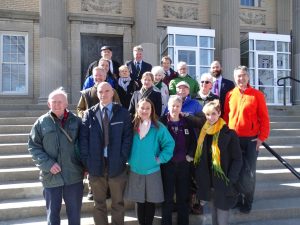
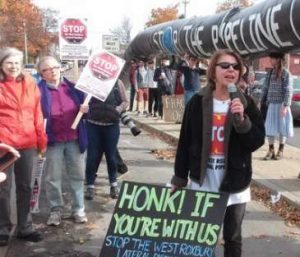
Judge Finds Activists Not Guilty On Necessity Defense
Thirteen environmental protesters were recently found not guilty in actions protesting a gas pipeline in the densely populated West Roxbury, Massachsuetts. In 2015 activists climbed into holes dug for the pipeline being built by the Houston-based company Spectra Energy. Judge Mary Ann Driscoll found them not responsible after hearing each one argue their actions to try and stop climate change were a legal “necessity”.
The so-called necessity defense is rarely accepted in US courts. Defendants relying on this defense argue that they should not be held liable for their actions because their conduct was necessary to prevent a greater harm.
In this case, the official court record will only state the charges were converted from criminal misdemeanors to civil infractions and that all defendants were found “not responsible.” But the judge DID state from the bench, on the record, that she was finding the defendants “not responsible” on the basis of necessity.
In response, environmentalist Bill McKibben, Tweeted this message: “Good golly! A few minutes ago a Boston judge acquitted 13 pipeline protesters on the grounds that the climate crisis made it necessary for them to commit civil disobedience. This may be a first in America.”
In general, a judge hearing a civil infraction case doesn’t have to give any reasons for finding a defendant not responsible. Here, the judge told lead counsel Andrew Fischer that she would state on the record that necessity was her reason for finding them not responsible.
The sustained resistance campaign would not have been possible without the support of the Massachusetts Chapter of the National Lawyers Guild, who represented every person who was arrested (often through multiple appearances) and supported the ongoing training efforts.
Guest – Kelsey Skaggs, Executive Director of the Climate Defense Project, she has worked on environmental issues at Crag Law Center in Oregon; on international environmental policy at Universal Rights Group in Geneva; and defending free speech activists at Media Legal Defence Initiative in London. Kelsey has also written about First Amendment issues related to NSA surveillance programs. She holds a B.A. in International Relations from the University of California, Davis, and a J.D. from Harvard Law School. Kelsey is licensed to practice law in the State of California.
Guest – Marla Marcum, Director of the Climate Disobedience Center and is a United Methodist committed to supporting people of all faiths and no particular faith to act boldly for justice. An experienced campaigner, trainer, pastor and lay leader, she brings two decades of social justice organizing experience with faith-based, youth, and grassroots groups.
——————————————

——————————————






















